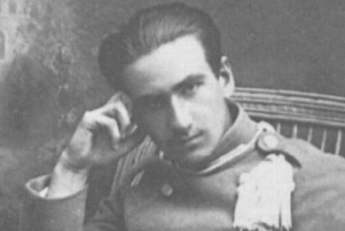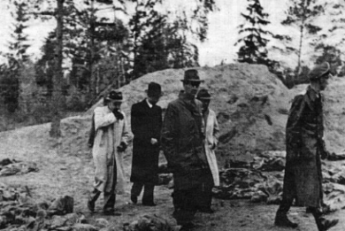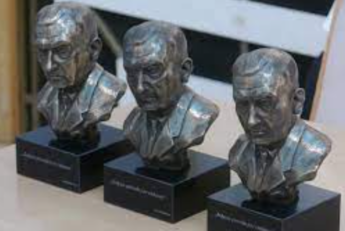
Blood and bone anti-communist
As an eyewitness to the birth of the Bolshevik system, Józef Mackiewicz had the opportunity to observe its initial stage. Over the years, he developed a coherent anti-communist concept, which he expressed in his Sovietological journalism. He became the precursor of such an approach.
Józef Mackiewicz was a supporter of the inconvenient view that the German Nazis were not the only perpetrators of crimes committed before and during World War II, although they are still considered the main culprits today. According to him, the Soviet leaders, who were the greatest beneficiaries of the new political order after the war, were equally guilty of these crimes, which testifies to his early anti-communist views, which were unacceptable after the end of World War II, because communism was ubiquitous in Europe, especially in areas of Eastern Europe.
Already in the early years of communism, Mackiewicz stated that it leads to the captivity of “thought, deed and movement”. That is why he unpopularly believed that it would be better for Poland not to exist at all than for a red Poland to exist on the maps. He believed that the main obstacle to a democratic and sovereign Poland was the Soviet Union. Such views were still proclaimed in 1944, i.e. before the new division of the world. Meanwhile, Polish elites believed that the Allies would secure Poland’s sovereignty for “helping to defeat the enemy.” Unfortunately, Mackiewicz’s predictions came true, and the Polish elites were deeply wrong.
As Mackiewicz predicted, after the victory in the war, the Soviets also had interests. Initially, they were given the territorial sovereignty of Poland. Nevertheless, this was not enough, because Stalin demanded hegemony throughout Europe. Unfortunately, neither Polish nor any other society put up any resistance to communist methods.
Mackiewicz proposed an accurate diagnosis and an answer to what awaited Polish society under the Soviet occupation. He was aware that the Soviets would use all possible means to destroy the unity and identity of the Polish nation, transforming it into a “Soviet nation”. Society will be divided into three main groups: a small group of Polish ideological communists, a large group of sincere patriots and the largest group of indifferent and opportunists.
“I do not agree that Germany should be the greatest enemy. The Bolsheviks are the greater enemy, because they are more dangerous for every nation. From the simple formula that no Pole can be German at the same time, because these concepts are mutually exclusive. But every Pole can be a communist at the same time. Because these terms, unfortunately, often even rhyme well. We falsify reality, sometimes putting a sign of the equation between the German and Soviet occupation. The German one makes us heroes, and the Soviet one makes us shit. The Germans shoot at us and the Soviets take them with their bare hands. We shoot at the Germans, and we crawl up the Soviets’ ass. So it’s not an analogy, it’s the reverse.”
Terminology played an important role in Józef Mackiewicz’s journalism, which he chose very subtly. He was aware that semantic nuances are also crucial in communist propaganda. That is why Mackiewicz pointed out that the term “anti-communist” was replaced by terms such as “oppositionist”, “dissident”, “critic of the regime”, “defender of human rights”, which was intended to make these terms more acceptable to a wider audience.
In his works, Józef Mackiewicz often criticized the anti-communist system and often claimed that it would “kill” all attempts of Poland to become a sovereign state. Because what is the difference between a Soviet Pole and an ordinary Soviet? According to Mackiewicz, a Pole who begins to adapt to the Bolshevik regime ceases to be a Pole. According to J. Mackiewicz, it was much better to be an anti-communist, inconvenient for society, than a “Bolshevik rag” who believes in Soviet Poland.
Based on an article by Grzegorz Łukomski in “Political Theology”.
Written by Łukasz Czunkiewicz
Translated by Joanna Zawalska







